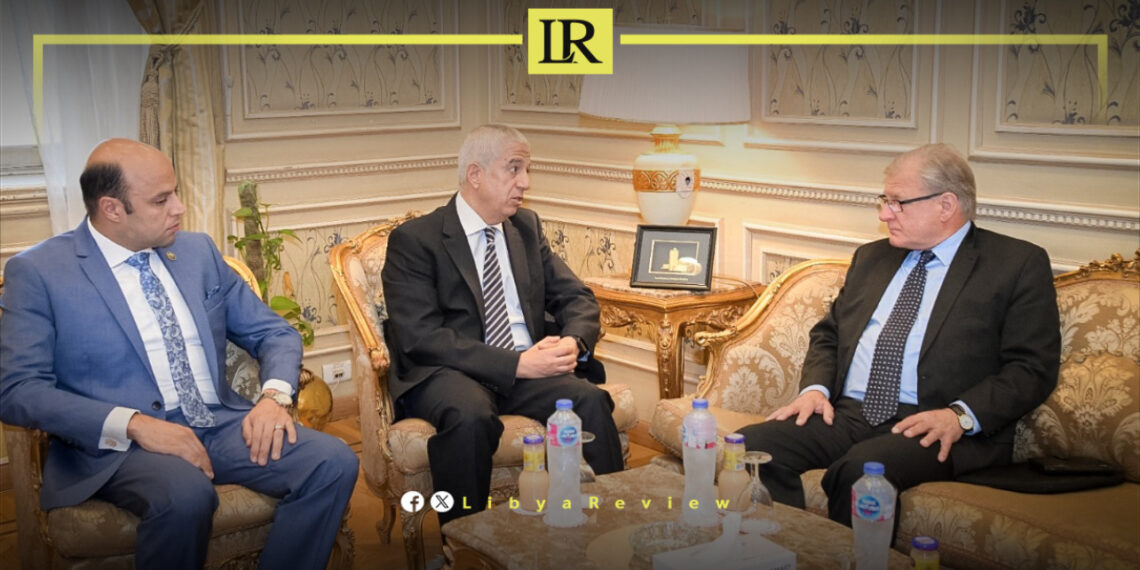On Tuesday, US Special Envoy to Libya, Ambassador Richard Norland, met with Karim Darwish, Chairman of the Foreign Affairs Committee in Egypt’s Parliament, to strengthen cooperation between the United States and Egypt in advancing the political process in Libya.
The talks aimed at fostering stability and unity in Libya, which has been locked in political turmoil for over a decade.
According to a statement from the U.S. Embassy on the “X” platform, Norland highlighted the importance of deepening U.S.-Egyptian consultations to push forward efforts aimed at resolving Libya’s conflict. Both nations share a commitment to supporting Libya’s sovereignty, stability, and political transition.
Norland’s meeting with Egyptian officials follows a productive session held on Monday with Ambassador Hossam Zaki, Assistant Secretary-General of the Arab League, in Cairo. The U.S. and the Arab League reiterated their joint dedication to ensuring the unity and territorial integrity of Libya during this critical period.
Egypt plays a central role in the efforts to stabilize Libya, given its proximity and regional influence. The country has hosted several international conferences and peace talks aimed at facilitating dialogue between Libya’s warring factions. Tuesday’s meeting between Norland and Egyptian lawmakers reaffirms the strong partnership between the U.S. and Egypt as they work to end the deadlock and establish a path forward for Libya’s political process.
Ambassador Norland’s visit to Cairo reflects the Biden administration’s focus on diplomatic engagement in the Libyan crisis. Both the U.S. and Egypt are pushing for long-overdue national elections in Libya, which are seen as a crucial step in resolving the country’s political stalemate. However, disagreements over election laws have prevented any significant progress.
Libya has been in a state of political chaos since the 2011 overthrow of Muammar Gaddafi. The country is divided between two rival administrations: the Government of National Unity (GNU) based in Tripoli, and an eastern administration.
This divide has led to ongoing conflict and instability, with each side vying for control over Libya’s resources and key institutions.
Efforts to bring the country together through national elections have been repeatedly delayed due to disputes over who is eligible to run for office and the lack of a unified legal framework. Libya’s vast oil wealth has only deepened the divide, as control of oil fields and revenues remains a contentious issue between the East and West.
The country is also plagued by the presence of foreign mercenaries, militias, and external interference, all of which complicate efforts to build a functioning, unified government.


